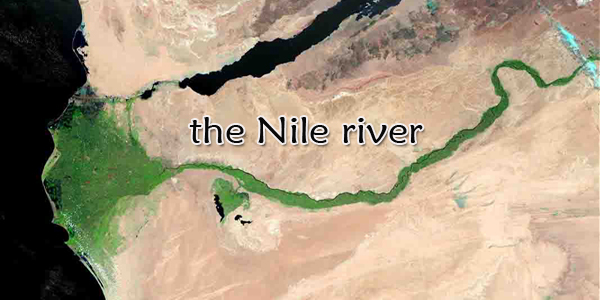- Washington “follows with interest” Morocco’s openness onto Africa (John Kerry)Posted 11 years ago
- The trial of South African Paralympic champion Oscar Pistorius opened in Pretoria on Monday.Posted 11 years ago
- USA welcomes efforts of King Mohammed VI in MaliPosted 11 years ago
- Egypt’s population reaches 94 millionPosted 11 years ago
- Mugabe celebrates his 90thPosted 11 years ago
- Moroccan Monarch to Build a Perinatal Clinic in BamakoPosted 11 years ago
- King Mohammed VI handed a donation of bovine semen for the benefit of Malian breeders.Posted 11 years ago
- Moroccan King’s strategic tour to Africa: Strengthening the will of pan African Solidarity and stimulating the south-south cooperation mechanisms over the continentPosted 12 years ago
- Senior al-Qaida leader killed in AlgeriaPosted 12 years ago
- Libya: The trial of former Prime Minister al-Baghdadi AliPosted 12 years ago
Egypt: Rice production, victim of the water restrictions
 “Most of Egyptians think the Nile begins at the border with Sudan and ends at the Mediterranean Sea. It’s hard to imagine that people in so many different countries call the river their own”.
“Most of Egyptians think the Nile begins at the border with Sudan and ends at the Mediterranean Sea. It’s hard to imagine that people in so many different countries call the river their own”.
Pressured by the upstream countries of the Nile about the existing division of the waters, challenged for more balanced use of the river, and being at the end of the line, Egypt has its worries and decided to limit drastically rice cultivation, a high consumer of water.
About 20% of the Egyptian water quota goes to rice production sector. This activity is highly regulated by the government and confined to a few regions of the delta, the traditional Egypt’s breadbasket. Following its limitations, the rice fields cover only half the area they occupied two years ago, about 460,000 hectares. The 3.8 million tons of rice production in 2009, including about 300 000 tonnes for export, should be seriously amputated, and many farmers have turned to substitute products, but they are usually less profitable. To limit the impact of restrictions on rice production for the domestic market, the authorities have banned, and until further orders, exports, but again the measure has its downside, experts said: Egypt will lose market places that it has hardly won. Instead of earning foreign currency, Egypt will have to spend money to import, and we will end with the same problem as for wheat. Others criticized the Egyptian choice of orienting its agriculture to high value added products for export at the expense of basic needs of its 80 million inhabitants. Many businesses depend on rice production: farmers, processing plants, road transport and export. It is a very important industry, and even if the price of rice has not increased sharply in recent months, but the risk exists at a time when Egyptians are facing high inflation on food such as meat, tomatoes and some vegetables. Habib Ayeb, from the American University of Cairo, is wondering why the government is decreasing rice acreage, when we know that strawberries’ fields require a lot of water too?
